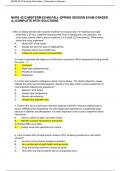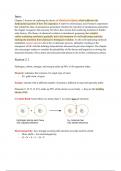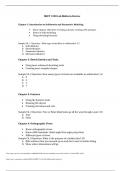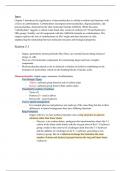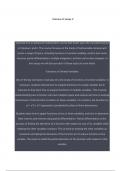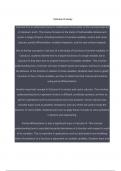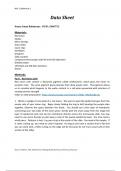University Of Houston - Main Campus
Latest uploads at University Of Houston - Main Campus. Looking for notes at University Of Houston - Main Campus? We have lots of notes, study guides and study notes available for your school.
-
358
- 0
-
19
All courses for University Of Houston - Main Campus
- FINA 2020A FINA2020A 1
- FINA 4357 FINA4357 2
- FINA 4358 21
- FINA 4358 HOMEWORK 9 FINA 4358 HOMEWORK 9 5
- FINA 4358 MODULE 1 1
- FINA 4358 MODULE 1 QUIZ FINA 4358 MODULE 1 QUIZ 3
- FINA 4358 MODULE 2C ASSIGNMENT FINA 4358 MODULE 2C ASSIGNMENT 3
- FINA 4358 MODULE 4 ASSIGNMENT FINA 4358 MODULE 4 ASSIGNMENT 3
- FINA 4358 MODULE 5 ASSIGNMENT QUESTIOND AND ANSWERS FINA 4358 MODULE 5 ASSIGNMENT QUESTIOND AND ANSWERS 1
- FINA 4358 MODULE 5 ASSIGNMENT QUESTIOND AND ANSWERS 2
- FINA 4358- 1
- FINA 4358-CHAPTER 1 QUIZ FINA 4358-CHAPTER 1 QUIZ 3
- Fluid dynamics 1 MECE 6397 1
- FOS 100 SOPHIA COLLEGE READINESS MILESTONE 2 {2020} 1
- FOS 100 SOPHIA COLLEGE READINESS MILESTONE 3 1
- Fundamentals of Chemistry I CHEM1311 1
- NR 439 NR 439 1
- NR 565 Week 5 Grand Rounds Presentation Part 1 – Peptic Ulcer Disease NR565 1
- NR 599 Midterm ROK 1
- NR599 1
- NURS 1341 NURS 1341 1
- NURS 3066 NURS 3066 2
- NURS 3230 1
- NURS 3247 NURS3247 3
- NURS 3247 Pharmacology - Proctored Assesment NURS3247 4
- NURS 3247 Pharmacology - Proctored Assessment Pharmacology – Proctored Review 1
- NURS 3247 Pharmacology – Proctored Review 1
- NURS 3631 1
- NURS 599 1
- NURS 601 1
- NURS FUNDAMENTA 1
- NURS MISC 1
- NURSING 3230 1
- NUTR 3336 1
Latest notes & summaries University Of Houston - Main Campus
NURS 4212 MIDTERM EXAM FALL-SPRING SESSION EXAM GRADED A+|COMPLETE WITH SOLUTIONS
Chapter 2 focuses on exploring the theory of chemical evolution, which addresses the fundamental question of how life originated. It starts by referencing Louis Pasteur's experiment that refuted the idea of spontaneous generation. Despite the rejection of spontaneous generation, the chapter recognizes the necessity for life to have arisen from nonliving materials in Earth's early history. The theory of chemical evolution is introduced, proposing that complex carbon-containing substances gradua...
MECT 1330 Lab Midterm Review Chapter 1: Introduction to Solidworks and Parametric Modeling. Know chapter objectives: Creating a sketch, creating a file and part. Basics of solid modeling Using sketching functions Sample Ch. 1 Question: What type of modeler is solidworks? (C) A. Solid Modeler B. Sketch Modeler C. Parametric Modeler D. Mechanical Modeler Chapter 2: Sketch Entities and Tools. Using more advanced sketching tools Creating more complex shapes Sample Ch...
Chapter 5 introduces the significance of macromolecules in cellular evolution and function, with a focus on carbohydrates. Carbohydrates encompass monosaccharides, oligosaccharides, and polysaccharides, characterized by their molecular formula (CH2O)n. While the name "carbohydrate" suggests a carbon-water bond, they consist of carbonyl (C=O) and hydroxyl (-OH) groups. Notably, not all compounds with the CnH2nOn formula are carbohydrates. The chapter explores the role of carbohydrates in life'...
Chapter 6 explores the significance of membranes in biological evolution and cellular life. It begins by discussing the hypothesis that biological evolution originated from self-replicating molecules enclosed within membranes. These membranes, particularly the plasma membrane, act as selective barriers, separating life from nonlife and regulating the passage of substances. Their role in concentrating reactants within cells promotes efficient chemical reactions. The chapter dives into the formati...
Chapter 4 delves into the origins of life, highlighting the RNA world hypothesis as a leading contender for life's beginnings. It explores the debates surrounding the first "living molecule," whether RNA was the initial player, and how self-replicating molecules led to biological evolution. The chapter also discusses nucleic acids' structure, function in modern cells, and their role in triggering life's evolution on Earth. It starts with an examination of nucleic acid monomers and their polymeri...
Chapters 3 to 6 explore the molecule responsible for life's origin. Early experiments, including Stanley Miller's, produced amino acids, the building blocks of proteins. Amino acids have been found in meteorites and in interstellar-like conditions. This raises the question: Could proteins, made of amino acids, have sparked life? For this, proteins must possess life's key attributes: information, replication, and evolution. We start by understanding amino acids, proteins' basic units, and how t...
A very detailed Page of notes.
Materials: Red onion Elodea Micro forceps Glass slides Cover slips KimWipes Droppers Tally counters Compound microscopes with 4X and 10X objectives Distilled water 15% NaCl and 1M NaCl solutions Gloves Methods: Part I. Red Onion Cells Red onion cells contain a flavonoid pigment called anthocyanin, which gives the onion its purplish color. The same pigment gives petunias their deep purple color. This pigment allows us to visualize what happens to the water content in a cell when ...

